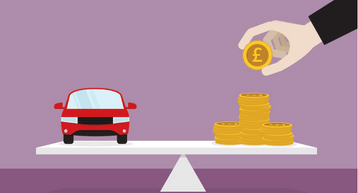The automotive retail sector’s supply issues and buoyant used car residual values have been described as a “happy accident” preventing the motor finance sector from “blowing up”.
In the Financial Times’ (FT) regular personal finance advice feature, columnist Claer Barratt today (November 24) drew the conclusion as she explored whether the cost-of-living crisis could cause the wheels to fall off a sector built on cheap deals made possible by years of rock bottom interest rates.
Barratt noted that car buyers who took out contracts in happier times may find that payments of £400 or £500 a month a growing burden as their household bills shoot up.
Peter Campbell, the FT’s global motor industry correspondent, offered assurance that high used car values triggered by global vehicle production issues would ensure PCP deals continued to present good value and place car buyers in the driving seat when it came to buying another new car.
“Used car prices are starting to dip from historic highs, but Peter thinks the huge rally in prices plus long lead times for new cars will keep residual values ticking over for the next few years,” Barratt said.
“This could prevent the car finance market from blowing up — but it feels like a happy accident.”
The FT’s report followed research from The Car Expert which showed that finance debt for new and used cars has risen to £40 billion per year in the UK, prompting concerns that consumers may default on agreements amid soaring living costs.
Its analysis showed that UK car finance debt has increased by £29bn since 2009, with the average amount financed per new car having more than doubled from just under £12,000 at the start of 2009 to more than £25,000 by the end of June 2022.
AM this week reported on a presentation given by Graeme Chaplin, Bank of England agent for West Midlands and Oxfordshire, at the Vehicle Remarketing Association’s (VRA) Annual Seminar.
After UK inflation rose to 11.1% in October he told delegates that the base rate, known as the Bank Rate, is expected to rise to “about 4.5% to 4.7%” from its new 3% rate, placing pressure on household spending and the cost of motor finance. He added: “A slowdown is coming.”















Login to comment
Comments
No comments have been made yet.